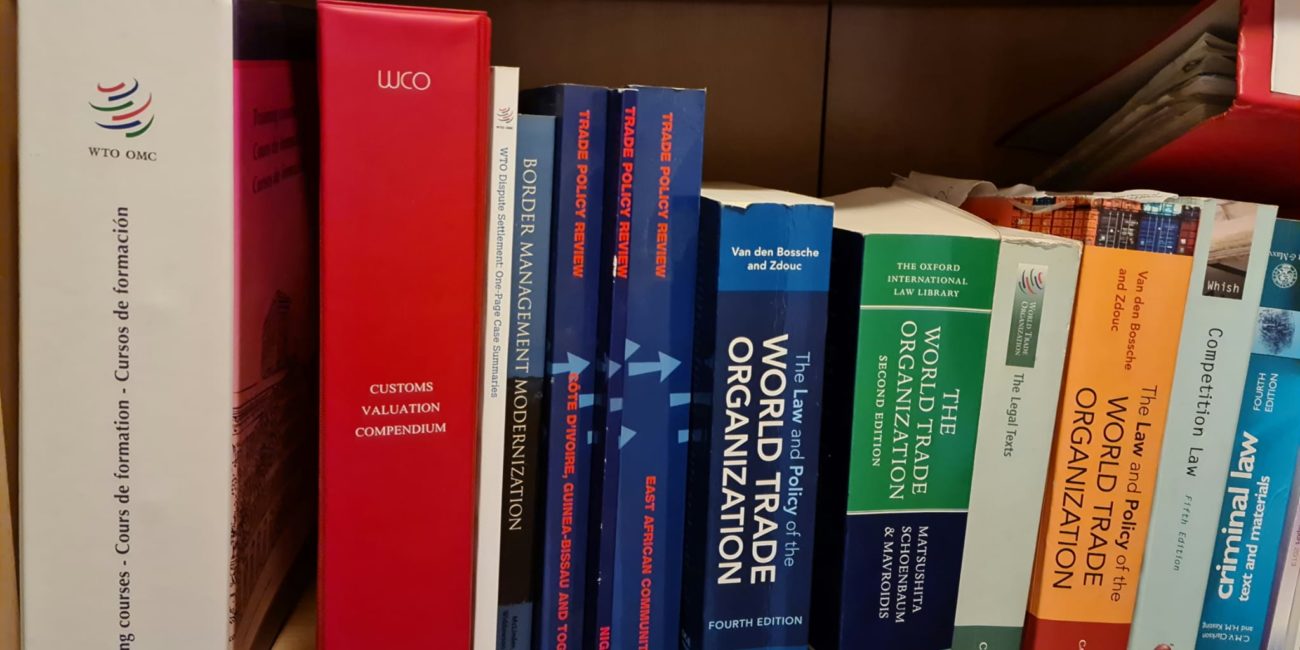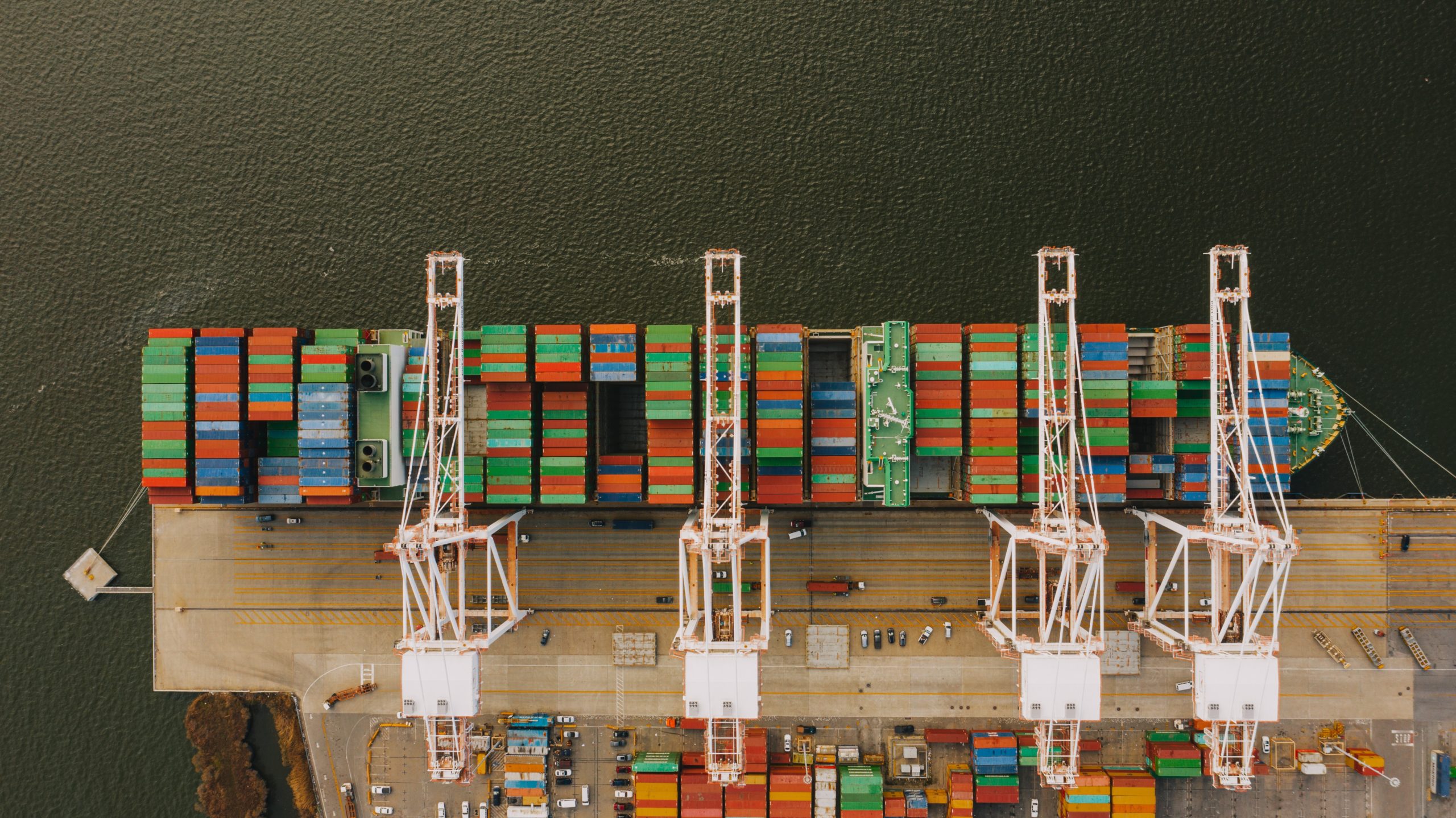
World Trade Organization Law
Despite the criticism levelled against the WTO, it is here to stay because more and more countries are applying to join. Russia spent over 17 years negotiating to become a member of the WTO. It is a well-known fact that WTO Law is becoming increasingly complex and its highly technical jurisprudence is challenging even for developed Member States who have highly experienced experts advising them. It is therefore important to get a good understanding of how the WTO works and acquire a solid knowledge of its complex and difficult agreements to be able to trade effectively on the global market. This course aims at providing a solid understanding of the function of the WTO and the various Agreements and rules that have been established to govern multilateral trade. The course will start with the basic principles of the WTO and expand its reach to cover specific WTO agreements. Training in the WTO Dispute Settlement Mechanism will be provided for lawyers and judges. At the end of the course, participants should be able to follow the work of the WTO and apply the rules successfully in their conduct of international trade.
Some agreements and rules
Agriculture
Sanitary and Phytosanitary measures
Technical Barriers to Trade
Customs Valuation
Rules of Origin
General Agreement on Trade in Services

African Continental Free Trade Area Agreement (AfCFTA)
The AfCFTA which came into force on 1 January 2021, has ushered in a single market on the African continent for trade in goods, services, investment, intellectual property and free movement of business people.
Like the World Trade Organization, the main objective of the AfCFTA is to eliminate or reduce tariff and non-tariff barriers in trade considerably and allow the free flow of goods, services and investment across the continent. This action is designed to strengthen intra-African trade, foster economic integration, boost revenue for individual countries and help socio-economic development to alleviate poverty.
While negotiations in certain sectors such as competition policy, Rules of Origin, investment and intellectual property are ongoing, most of the agreements covering goods have been implemented.
While challenges for the attainment of the AfCFTA’s objectives lie ahead due to the varying economic strengths and different levels of economic development of the 54 countries, there is no doubt that the Agreement is a much-needed protocol to link African countries to strive for the common goal of getting rid of poverty on the continent.
It is noteworthy that some of the AfCFTA agreements, especially those governing goods and services mirror the provisions of similar WTO agreements. For example, in trade in goods, AfCFTA’s Annex 4 Trade Facilitation, Annex 6 Technical Barriers to Trade, Annex 7 Sanitary and Phytosanitary Measures and Annex 9, Trade remedies, are directly imported from the WTO Agreements on the same subjects.
Fifty-four countries have signed the AfCFTA. Eritrea is the only country that hasn’t signed the Agreement. As of 1 February 2021, 35 out of the 55 countries in Africa had ratified the Agreement.
Training courses in AfCFTA include :
AfCFTA basic legal principles
Tariff and non-tariff measures
Rules of origin
Sanitary and phytosanitary measures
Technical barriers to trade
Trade remedies
Trade facilitation
Trade in services
Training will evolve to include new subject areas as agreement protocols are completed.
Skills and Techniques in negotiations
At the WTO and in any business environment, negotiations are taking place on a daily basis either for establishing rules to govern international trade or selling goods and services. The success of any negotiator depends on how well the person can negotiate to his or her advantage. This course will teach participants the ways to develop their skills to become powerful negotiators. This will be a six-week program. At the end of the course, participants would know the different types of negotiations, how to prepare and plan towards negotiations and the techniques for negotiating successfully.
Drafting of contracts
This course will teach participants how to draft commercial contracts for both domestic and international trade. The aim is to train participants to acquire expertise in contract drafting to mitigate the errors that are the causes of several litigations in commercial transactions. Courses shall include drafting of the following contracts:
Courses shall include drafting of the following contracts:
Domestic and International Sales of Goods
Joint Ventures
Distribution Contracts
Supply of Goods and Services contract
Letter of Intent
Documentary credit transactions
In international trade where the buyer is resident in a country different from the seller, some reliable means of payment is essential for the smooth conduct of business. Documentary credit is one of the means for financing international trade. This course shall explain the law governing the finance of international trade and the various documentary credits available for commercial transactions.
International Commercial Arbitration
In a commercial transaction, an agreement that is entered into by two parties for the sale of goods or the provision of services may sometimes lead to a dispute when one of the parties reneges on its obligations under the agreement. An early resolution of the dispute is essential for the successful and timely performance of the contract. Commercial arbitration, as opposed to a court trial, affords a speedy resolution of disputes to ensure stability in the commercial and business environment. This course will train participants in the art of arbitration.
International Trade and Finance: Principles and Policies
National trade and finance regulations are increasingly being determined by WTO agreements. By placing emphasis on trade liberalization in international transactions, the WTO regulations directly encourage the survival of efficient competitors (in advanced countries) over the inefficient producers, usually located in developing countries. In order to optimize the benefits from the WTO negotiations, it is important that developing country negotiators be armed with the fundamental principles of international trade and finance.
Topics to be covered in this course include: Effects of domestic policies (import quotas, export taxes and subsidies, tariffs, consumption taxes, etc) on international trade; foreign exchange markets; interest rate parity and purchasing power parity; fixed vs. floating exchange rates; international capital markets; foundations of commodities markets; risk management (market risk, credit risk, country risk); financing instruments for international trade; ethics and values in finance.
Armed with a basic understanding of these principles, WTO negotiators from West Africa will be able to assist their governments in developing appropriate negotiating strategies
Global Trade in Healthcare Services
The revolution in information and communication technologies in the past decades has resulted in increases in global trade in such services as banking, insurance, entertainment, and education. The service industry constitutes over half of the global economy and trade in services is approximately a quarter of world trade.
International trade in healthcare services has been increasing among developed countries in Europe, North America, and the emerging economies such as India, China, Mexico, Brazil, Singapore, Thailand, etc. Africa is yet to take advantage of the emerging global trade in healthcare services, mainly due to the absence of appropriate infrastructure and skilled personnel.
The World Trade Organization’s General Agreement on Trade in Services (GATS) governs trade in health care services. Most West African countries lack the appropriate human capital and infrastructure required to compete with the advanced countries in the delivery of high-end healthcare services and diagnostics. With an increased investment in health education and access to the Internet at affordable price West African countries can participate in the global trade in healthcare services in such areas are telemedicine, distance learning, and health tourism. ITIWA will also assist policy makers in developing strategies for attracting Diaspora clinicians to deliver services in West Africa on scheduled and temporal basis.
Intellectual Property Law and Valuation
What is the economic value of the knowledge that developing countries create, own, and pretty much give away for pennies? In other words, how do we assist African countries to protect and value the intellectual properties created by their citizens? The World Trade Organization (WTO) Agreement on the Trade-Related Aspects of Intellectual Property Rights (TRIPS) concentrates on knowledge existing in developed countries. As far as developing countries are concerned TRIPS is not about how to create and protect their intellectual property rights but how developing countries can pay for access to the IP rights owned by developed countries. This arrangement does not encourage innovation and the generation of marketable knowledge. Thus, the culture embedded in art and music are ignored and undervalued. The scientific knowledge from out budding scientists are not valued. And, above all, the therapeutic knowledge of the natural and alternative medicine experts as well as the medicinal benefits of the native plants are undervalued.
This course is about intellectual property (IP), the protection and valuation of the intangible knowledge that has commercial value in international trade. Our objective is to augment the traditional legal analysis of IP with economic arguments that encourage governments and individuals in African countries to use intellectual properties in economic development.

